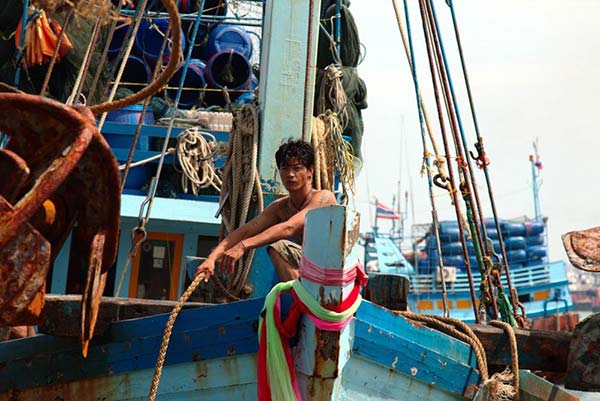Thailand: Forced Labor, Trafficking Persist in Fishing Fleets

(Brussels) – Forced labor and other rights abuses are widespread in Thailand’s fishing fleets despite government commitments to comprehensive reforms, Human Rights Watch said in a report released today. The report and a 15-minute film were released at a briefing at the European Parliament on January 23.
The 134-page report, “Hidden Chains: Rights Abuses and Forced Labor in Thailand’s Fishing Industry,” describes how migrant fishers from neighboring countries in Southeast Asia are often trafficked into fishing work, prevented from changing employers, not paid on time, and paid below the minimum wage. Migrant workers do not receive Thai labor law protections and do not have the right to form a labor union.
Even though Thailand has received a “yellow card” warning that it could face a ban on exporting seafood to the European Union because of its illegal, unreported, and unregulated (IUU) fishing practices, and the United States has placed Thailand on the Tier 2 Watch List in its latest Trafficking in Persons (TIP) report, Human Rights Watch found widespread shortcomings in the implementation of new government regulations and resistance in the fishing industry to reforms.
Read full article here: Human Rights Watch